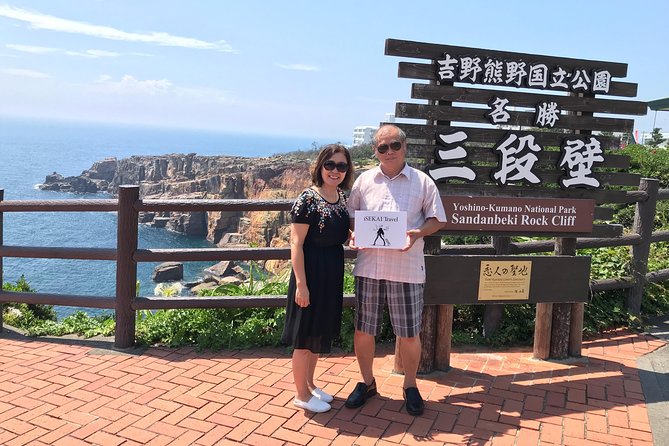Experience the old-world charm of Tokyo’s tea ceremony at Komaba Warakuan. In this immersive activity, participants can explore the rich cultural tradition of the Japanese tea ceremony.
Led by a knowledgeable instructor, the one to two-hour session offers a personalized and intimate experience. With a choice between a rich tea or a light tea, guests can learn about the intricate operations of the tea ceremony in a historical school setting.
As a school that taught the Kobori Enshu school and served as the tea ceremony instructor for the third Tokugawa shogun, Komaba Warakuan boasts a prestigious tea ceremony history.
From the elegance of the tea-making process to the serene ambiance, this experience promises to deepen your understanding and appreciation of this ancient art form.
Quick Takeaways
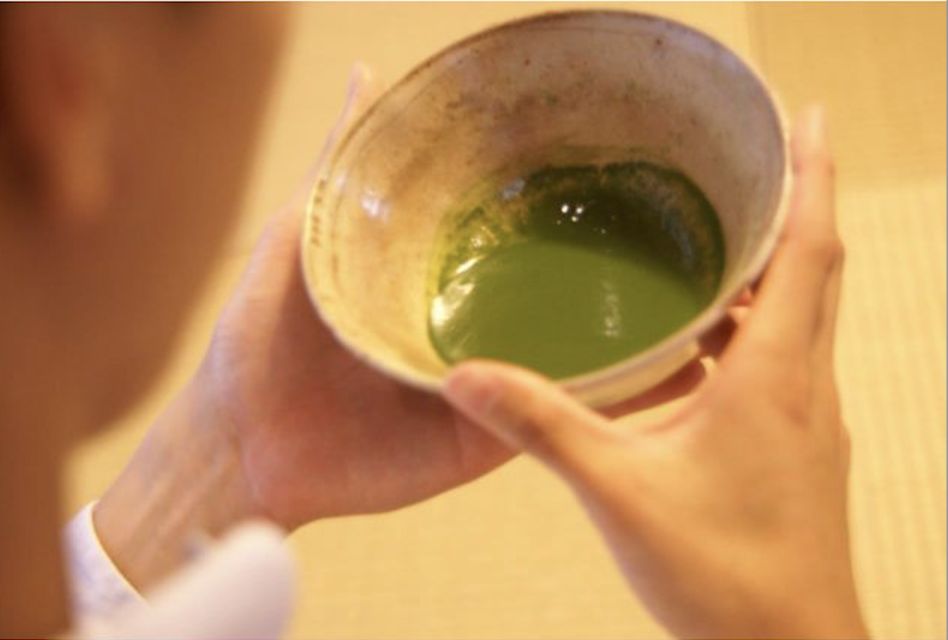
- Participants can experience the old-world charm of Tokyo’s tea ceremony at Komaba Warakuan.
- The experience is led by a knowledgeable instructor and offers a personalized and intimate session.
- Guests can choose between a rich tea or a light tea and learn about the intricate operations of the tea ceremony.
- Komaba Warakuan has a prestigious tea ceremony history and promises to deepen the understanding and appreciation of this ancient art form.
Not for you? Here's a few more great tours and experiences nearby.
About the Tea Ceremony Experience
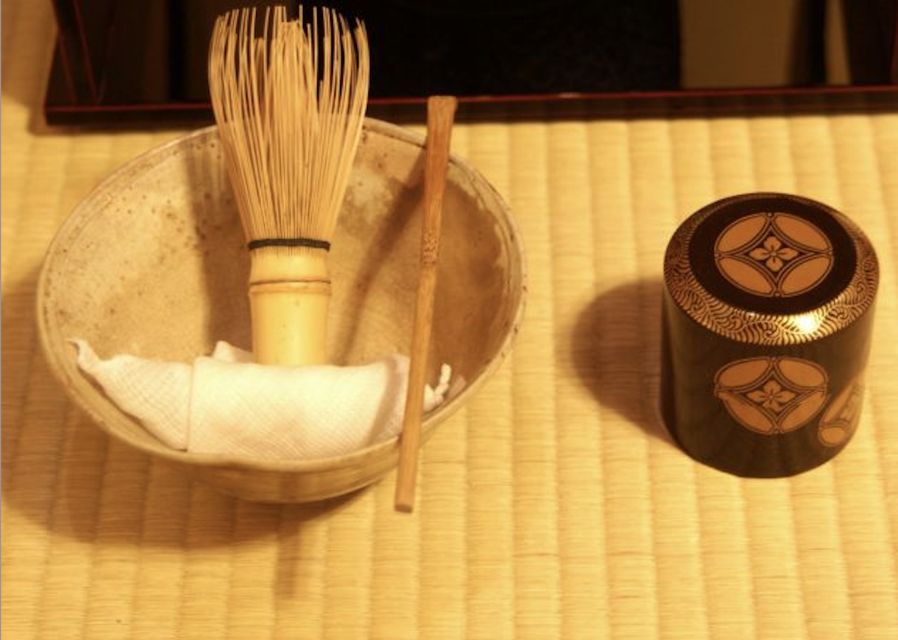
The Tea Ceremony Experience at Komaba Warakuan offers participants a unique opportunity to learn about the traditional Japanese tea ceremony in a small group setting, led by a knowledgeable instructor.
During the experience, you will have the chance to learn about tea ceremony etiquette and the different varieties of traditional Japanese tea. This immersive activity allows individuals to fully enjoy the rich cultural heritage of Japan and gain a deeper understanding of the significance of the tea ceremony.
Whether choosing the Rich tea or Light tea option, you will be guided through the process by the instructor, who’ll provide instruction on how to properly prepare and serve the tea.
The experience also includes the enjoyment of Japanese tea and traditional sweets, creating a well-rounded and authentic tea ceremony experience.
You can also read our reviews of more tours and experiences in tokyo.
Activity Details and Highlights
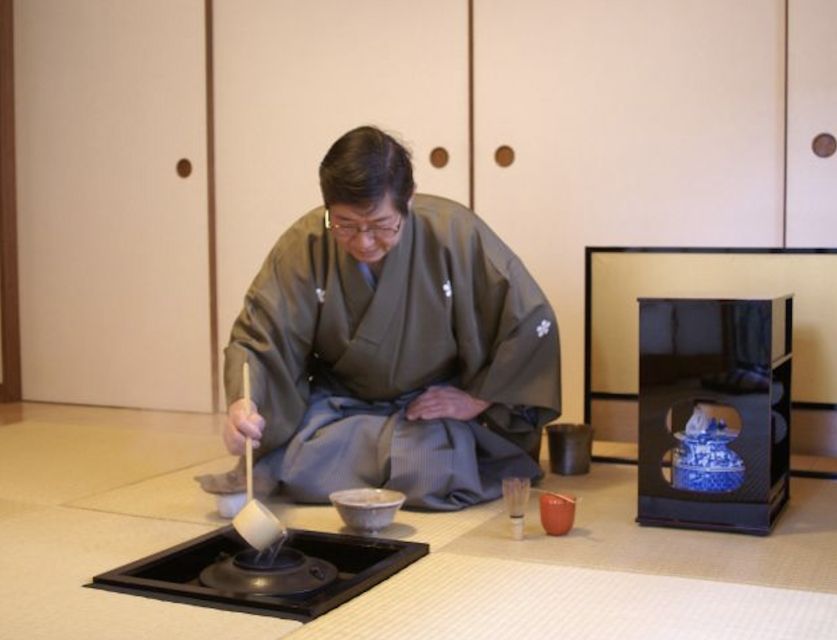
An article determines the activity details and highlights of the tea ceremony experience at Komaba Warakuan in Tokyo.
This beginner-friendly tea ceremony allows participants to choose between Rich tea or Light tea.
The experience takes place at Komaba Warakuan, a historical school that taught the Kobori Enshu school and served as the tea ceremony instructor for the third Tokugawa shogun.
The activity lasts for 1-2 hours and includes Japanese tea and traditional sweets.
During the session, you will learn about the cultural significance of tea ceremonies and the proper tea ceremony etiquette.
The instructor, who’s Japanese, will provide guidance on how to make tea and will also explain the flow of the process.
Fukusa scissors and tabi socks are provided, but participants can bring their own if desired.
This small group activity is limited to 4 participants.
Duration and Availability
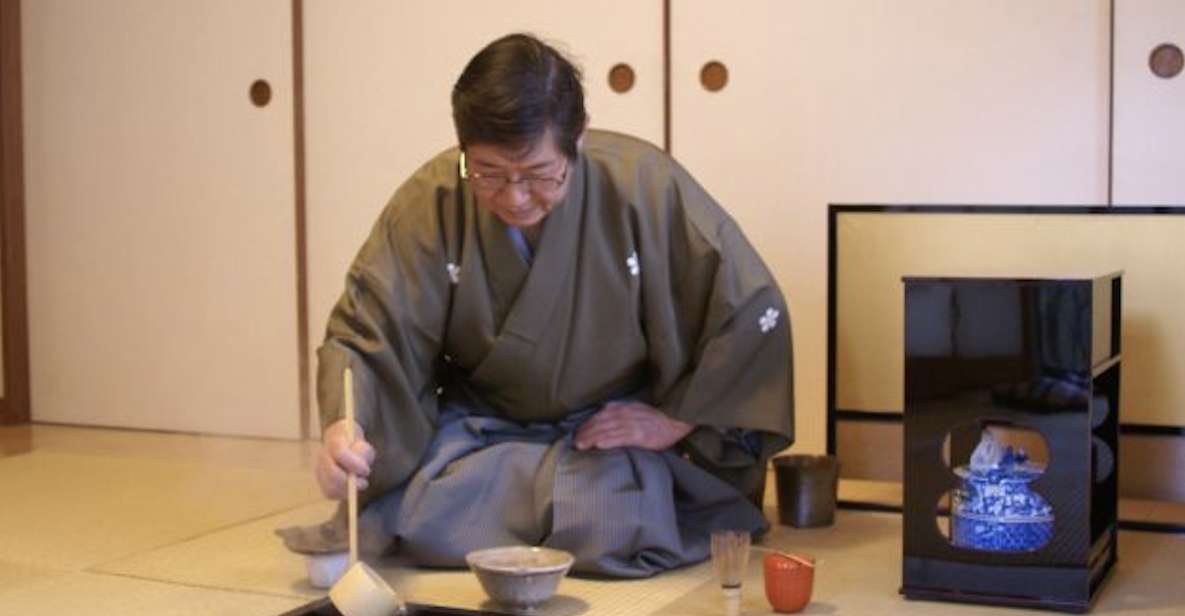
The tea ceremony experience at Komaba Warakuan in Tokyo has a duration of 1-2 hours and is subject to availability. Participants can choose between a Rich tea or Light tea option and will have the opportunity to learn about the tea ceremony’s operation in a historical school.
The session begins with an explanation of the flow of the process and you will be provided with tabi socks to change into before being led to the tea room. The instructor, who’s Japanese, will carefully teach participants how to make tea using provided Fukusa scissors or their own.
It’s important to note that availability may vary, so it’s recommended to check the schedule for starting times.
Instructor and Group Size
.jpg)
The tea ceremony experience at Komaba Warakuan in Tokyo is led by a Japanese instructor and is limited to a small group of up to four participants. The instructor carefully teaches participants the art of making tea, ensuring that they understand the proper tea ceremony etiquette. The teaching methods used are designed to be beginner-friendly, allowing participants to easily grasp the intricacies of the ceremony. Participants will have the opportunity to choose between Rich tea or Light tea, and both options include Japanese tea and traditional sweets. The small group size creates an intimate and immersive experience, allowing participants to fully engage with the instructor and gain a deeper understanding of the tea ceremony. This personalized approach ensures that each participant receives individual attention and guidance throughout the experience.
| Keywords | Description |
|---|---|
| Tea ceremony etiquette | Participants will learn the proper etiquette and customs associated with the tea ceremony. |
| Teaching methods | The instructor uses teaching methods that are beginner-friendly and allow participants to easily learn the ceremony. |
Description of Komaba Warakuan
.jpg)
Komaba Warakuan, a historical school in Tokyo, provides participants with an immersive tea ceremony experience led by a Japanese instructor. This school has a rich history, having taught the Kobori Enshu school and served as the tea ceremony instructor for the third Tokugawa shogun.
The tea ceremony holds great importance in Japanese culture, as it’s a traditional practice that embodies harmony, respect, and tranquility. At Komaba Warakuan, participants have the opportunity to learn about the operations of this historical school while engaging in the tea ceremony.
The experience includes a choice between Rich tea or Light tea, and all three courses offer Japanese tea and traditional sweets. It’s a unique and authentic way to take in the cultural heritage of Japan.
- Things To Do In Tokyo In November
- Things To Do In Tokyo In March 2024: Tokyo’s Best March Events
- Things To Do In April In Tokyo 2024: Tokyo’s Best April Events
- Things To Do In Tokyo In December 2023: Tokyo’s Best December Events
- Tokyo’s Weather And Seasons: A Guide For The Perfect Visit
- Tokyo Midtown Cherry Blossom Season
Tea and Sweets Included in All Courses
.jpg)
Tea and sweets are included in all courses at Komaba Warakuan, enhancing the immersive tea ceremony experience. The combination of tea and sweets is deeply rooted in Japanese tradition and culture. It’s a symbol of hospitality and a way to show respect to guests.
The tea served during the ceremony is meticulously prepared using high-quality tea leaves and hot water, creating a rich and aromatic flavor. The traditional sweets, known as wagashi, are made with natural ingredients and delicate craftsmanship. They complement the tea perfectly, balancing its bitterness with their subtle sweetness.
Schedule of the Tea Ceremony
.jpg)
At Komaba Warakuan, participants can expect a well-structured schedule for the tea ceremony, ensuring a smooth and immersive experience.
The ceremony begins with an explanation of the flow of the process upon arrival. Participants are then required to change into tabi socks before being led to the tea room through the open ground.
While tabi socks will be provided, participants also have the option to bring their own. The instructor will carefully teach participants how to make tea, providing Fukusa scissors and other necessary tools or allowing participants to bring their own.
This schedule allows participants to fully enjoy the etiquette and traditions of tea ceremonies, ensuring a memorable and authentic experience.
Similar Activities in Tokyo
.jpg)
While exploring Tokyo, you can discover a variety of similar activities to engage in, such as workshops or classes that provide unique cultural experiences. Here are three options for tea ceremony activities in Tokyo:
- Tokyo: Practicing Zen with a Japanese Tea Ceremony – This 75-minute workshop offers a small group setting and has received a high rating of 4.8 out of 5 based on 44 reviews. Participants can enjoy the art of tea making while learning about the principles of Zen Buddhism.
- Tokyo: Sushi Making Class – This 3-hour workshop allows participants to learn the art of sushi making from a professional sushi chef. With a small group setting and a perfect rating of 5.0 out of 5 based on 140 reviews, this activity offers a hands-on experience in mastering the art of sushi preparation.
- [Add third activity] – [Include details such as duration, group size, and rating if available].
These tea ceremony options in Tokyo provide individuals with the opportunity to explore Japanese culture and traditions while honing their skills in unique art forms.
Frequently Asked Questions
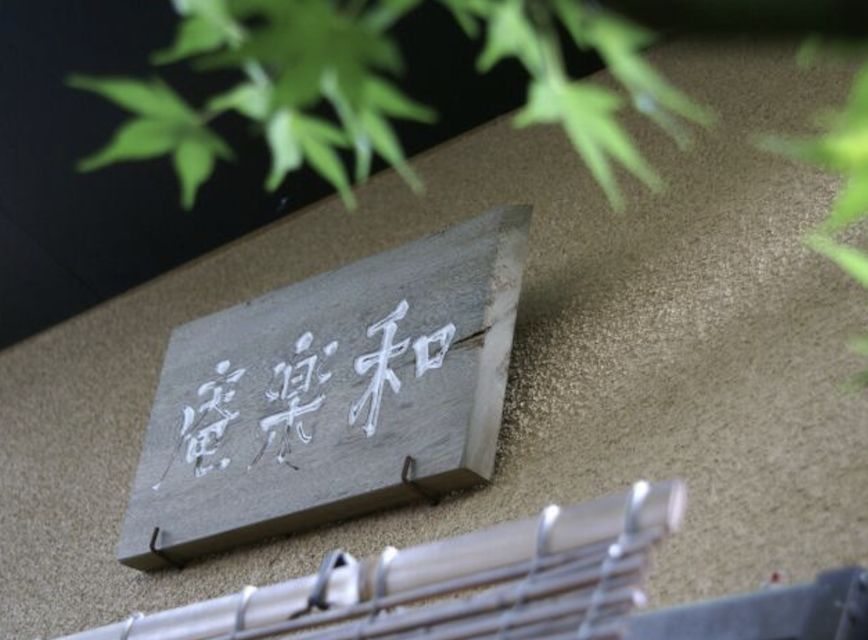
What Is the Significance of Wearing Tabi Socks During the Tea Ceremony?
The significance of wearing tabi socks during the tea ceremony is rooted in the cultural traditions of Japan. Tabi socks, with their separated big toe, provide stability and enhance the connection between the practitioner and the ground, creating a sense of mindfulness and respect during the ceremony.
Can Participants Bring Their Own Fukusa Scissors and Other Utensils for the Tea Ceremony?
Participants in the tea ceremony at Komaba Warakuan can bring their own fukusa scissors and other utensils. However, the instructor also provides them. It is important to adhere to tea ceremony etiquette and use the utensils properly.
How Long Does It Take to Learn How to Make Tea During the Tea Ceremony?
Learning how to make tea during the tea ceremony can take anywhere from 1 to 2 hours. The benefits of learning the tea ceremony include gaining insight into Japanese culture and experiencing a traditional practice firsthand.
Are There Any Age Restrictions for Participating in the Tea Ceremony at Komaba Warakuan?
There are no age restrictions for participating in the tea ceremony at Komaba Warakuan. All are welcome to experience this cultural tradition and learn the art of making tea, regardless of age.
What Other Workshops or Classes Are Available in Tokyo Besides the Tea Ceremony at Komaba Warakuan?
In Tokyo, besides the tea ceremony at Komaba Warakuan, there are various workshops and classes available. These include cooking classes and calligraphy workshops, offering visitors the opportunity to learn new skills and enjoy Japanese culture.
The Sum Up
To sum it up, the tea ceremony experience at Komaba Warakuan offers a unique and immersive opportunity to learn about and participate in this ancient Japanese tradition.
With a knowledgeable instructor and a small group setting, participants can expect a personalized and intimate experience.
The tea ceremony itself is conducted with precision and grace, allowing participants to fully appreciate the beauty and tranquility of this art form.
This activity provides a rich cultural experience for those seeking to explore Japanese traditions.
More Tour Reviews in tokyo
- Tokyo Airport Transfers: Tokyo City to Tokyo-Narita Airport NRT in Business Car
- Private & Custom TOKYO Day Tour Toyota COMMUTER (Max 13 Pax)
- Private Transfer From Tokyo Port to Tokyo Haneda Int Airport(Hnd)
- Shinjuku Golden-Gai and Kabuki-Cho Bar Hopping With Master Guide
- SHIMOKITAZAWA Local Walking Tour
- Small Group Iaido Class in Tokyo
Not for you? Here's more nearby things to do in tokyo we have reviewed
- Tokyo Airport Transfers: Tokyo City to Tokyo-Narita Airport NRT in Business Car
- Private & Custom TOKYO Day Tour Toyota COMMUTER (Max 13 Pax)
- Private Transfer From Tokyo Port to Tokyo Haneda Int Airport(Hnd)
- Shinjuku Golden-Gai and Kabuki-Cho Bar Hopping With Master Guide
- Small Group Iaido Class in Tokyo
- Private Casual Photoshoot Tour in Tokyo
- Private Transfer From Tokyo City Hotels to Sendai Cruise Port
- Private Transfer From Tokyo Narita Int Airport(Nrt) to Tokyo Port
- Okonomiyaki Cooking,Japanese Sake Free Flowing Experience
- Mt. Fuji Majestic Tours : Shinjuku to Arakurayama and Beyond
- Private Transfer From Tokyo Cruise Port to Tokyo Hotels
- Private Transfer From Nagasaki Hotels to Nagasaki Cruise Port

